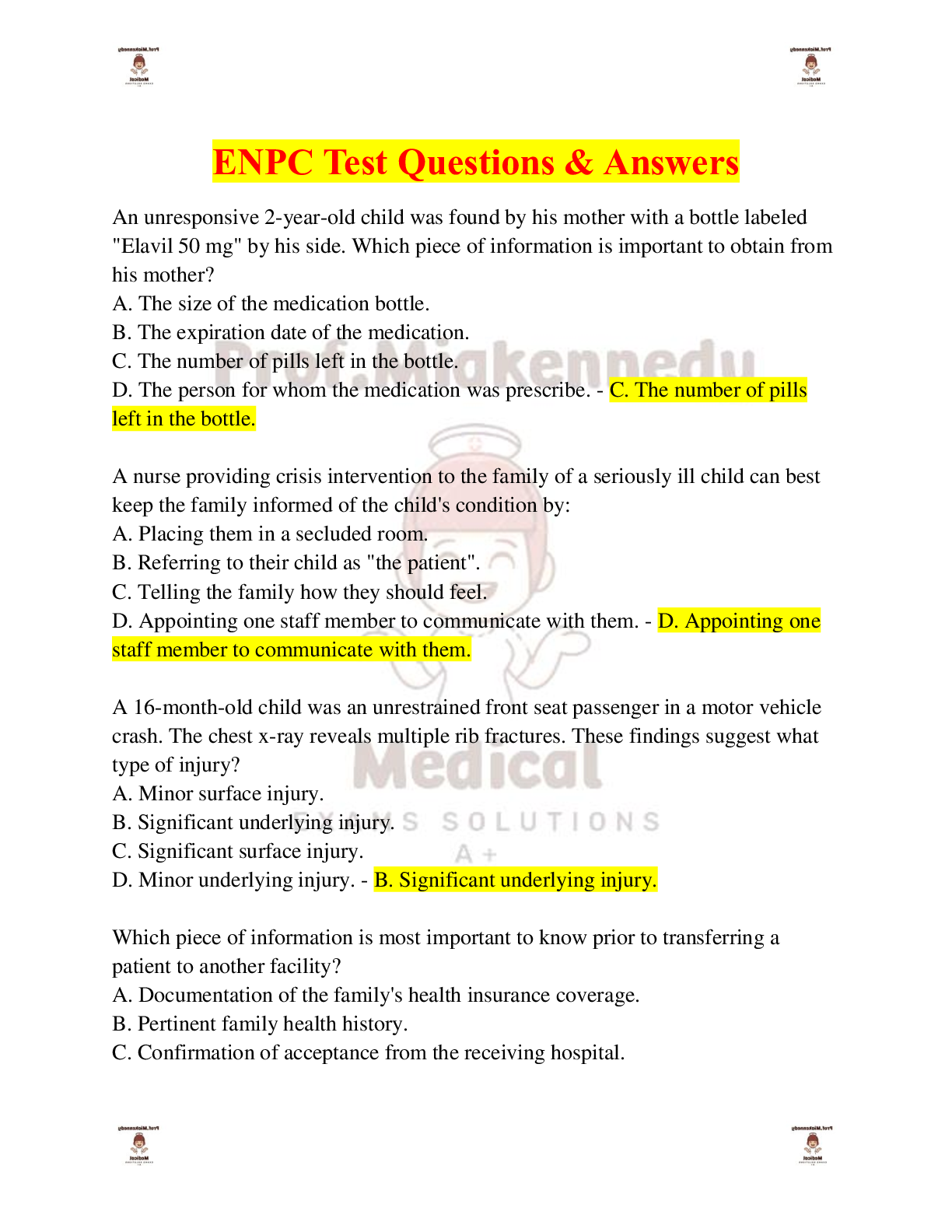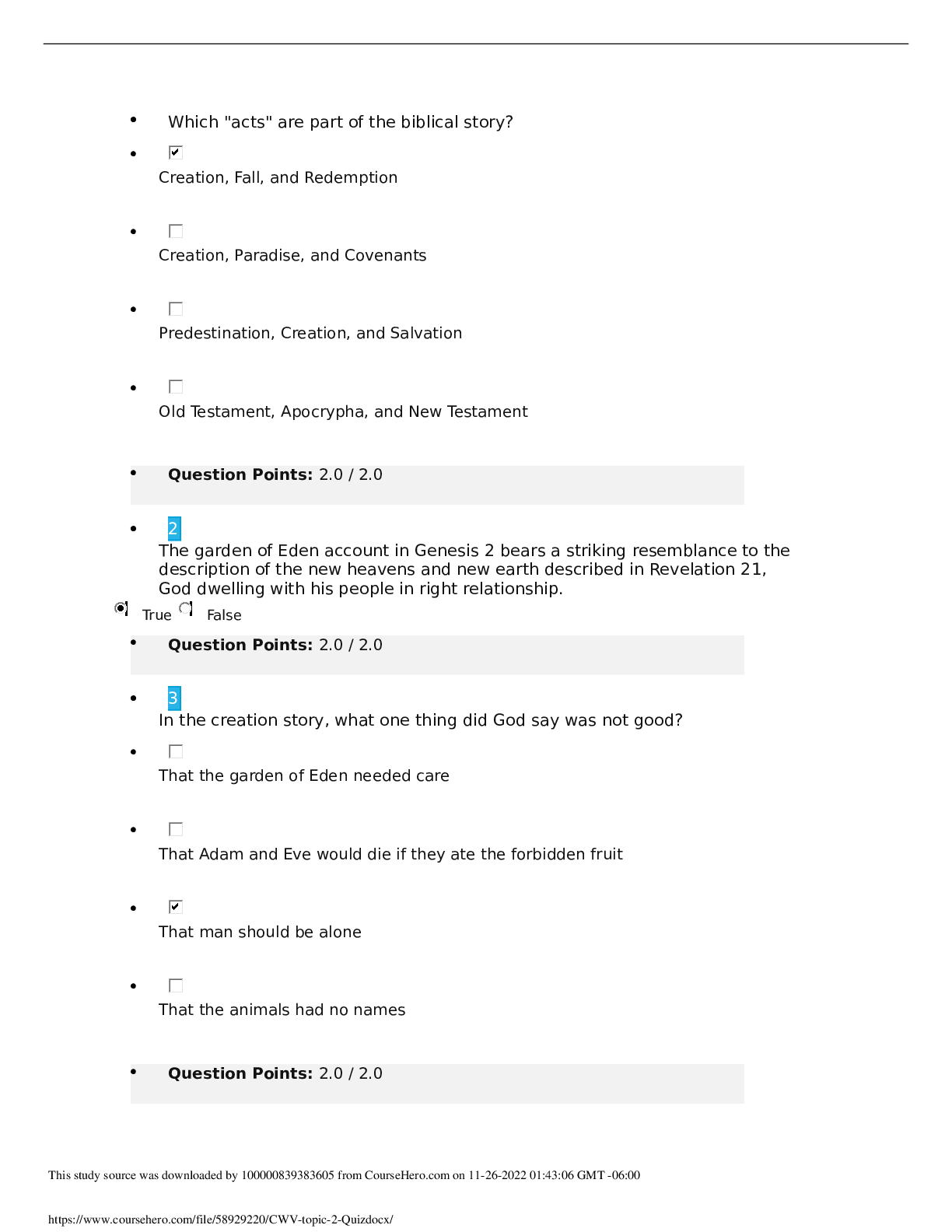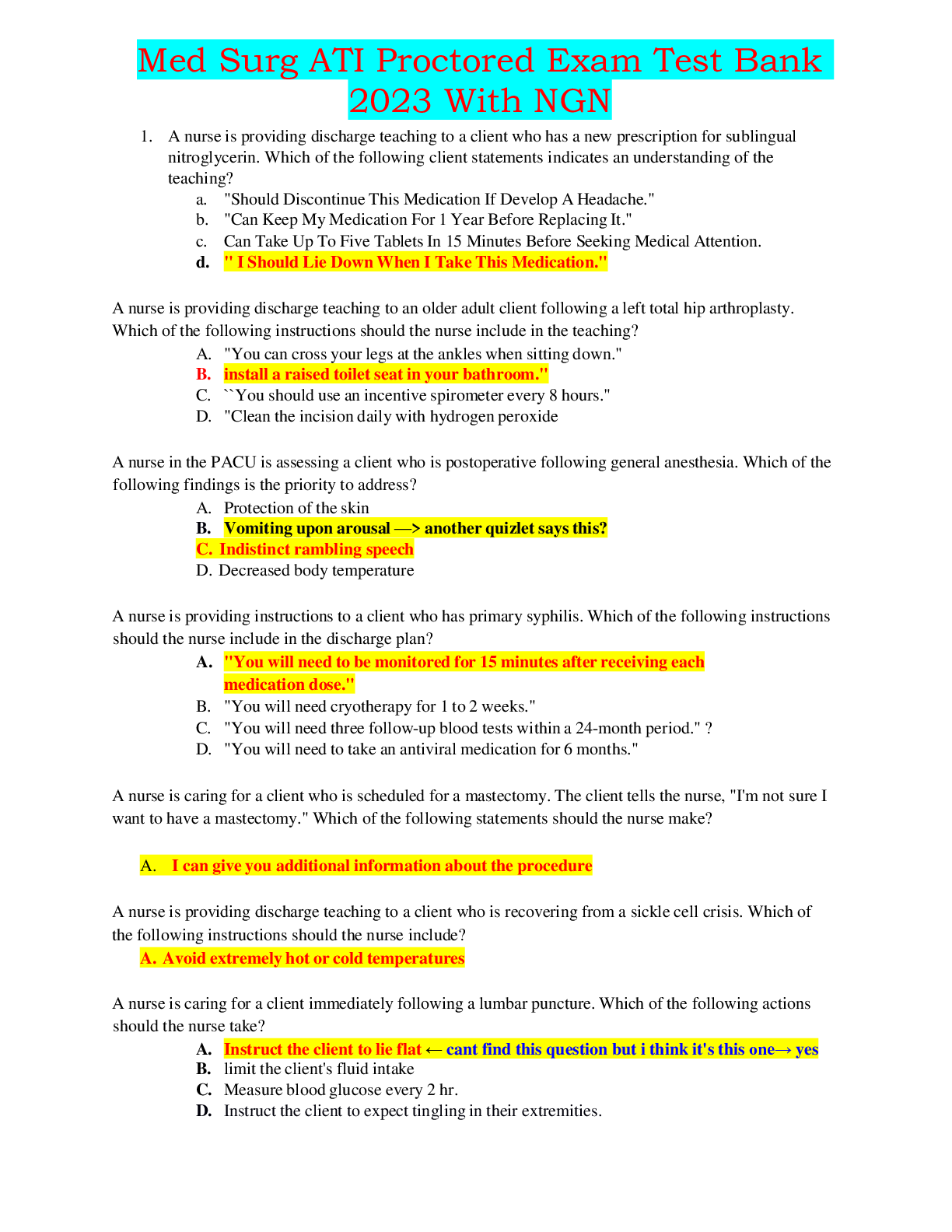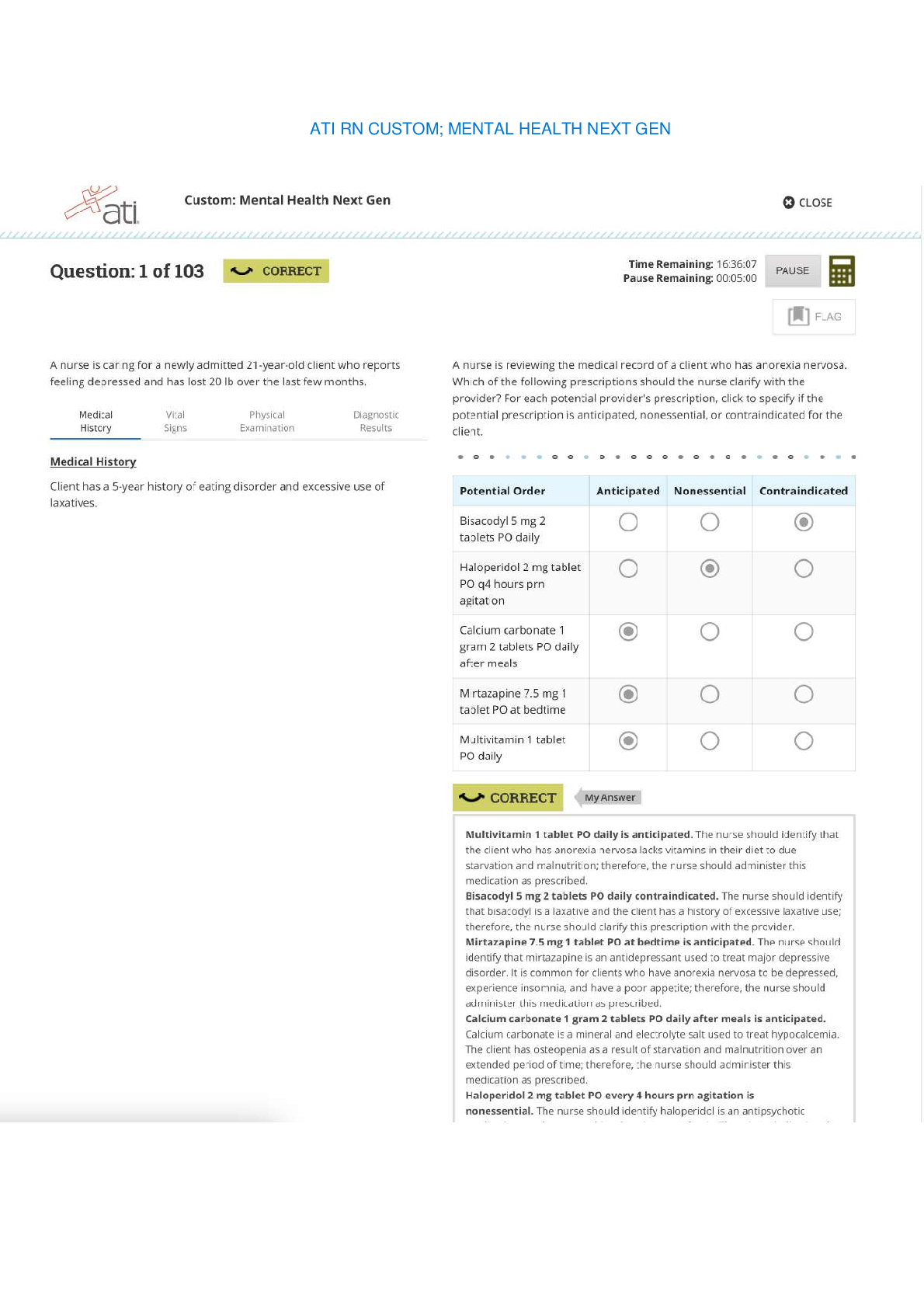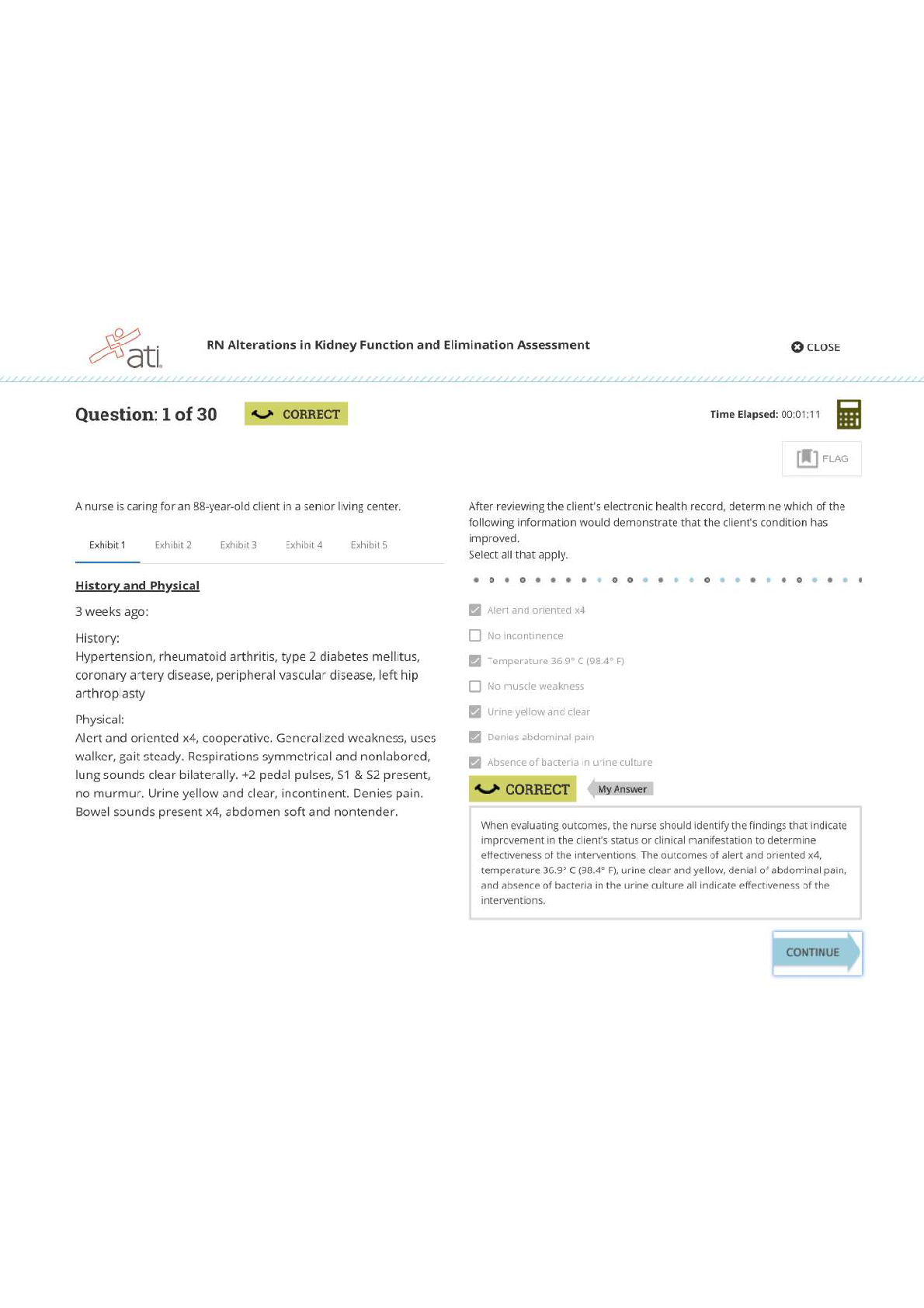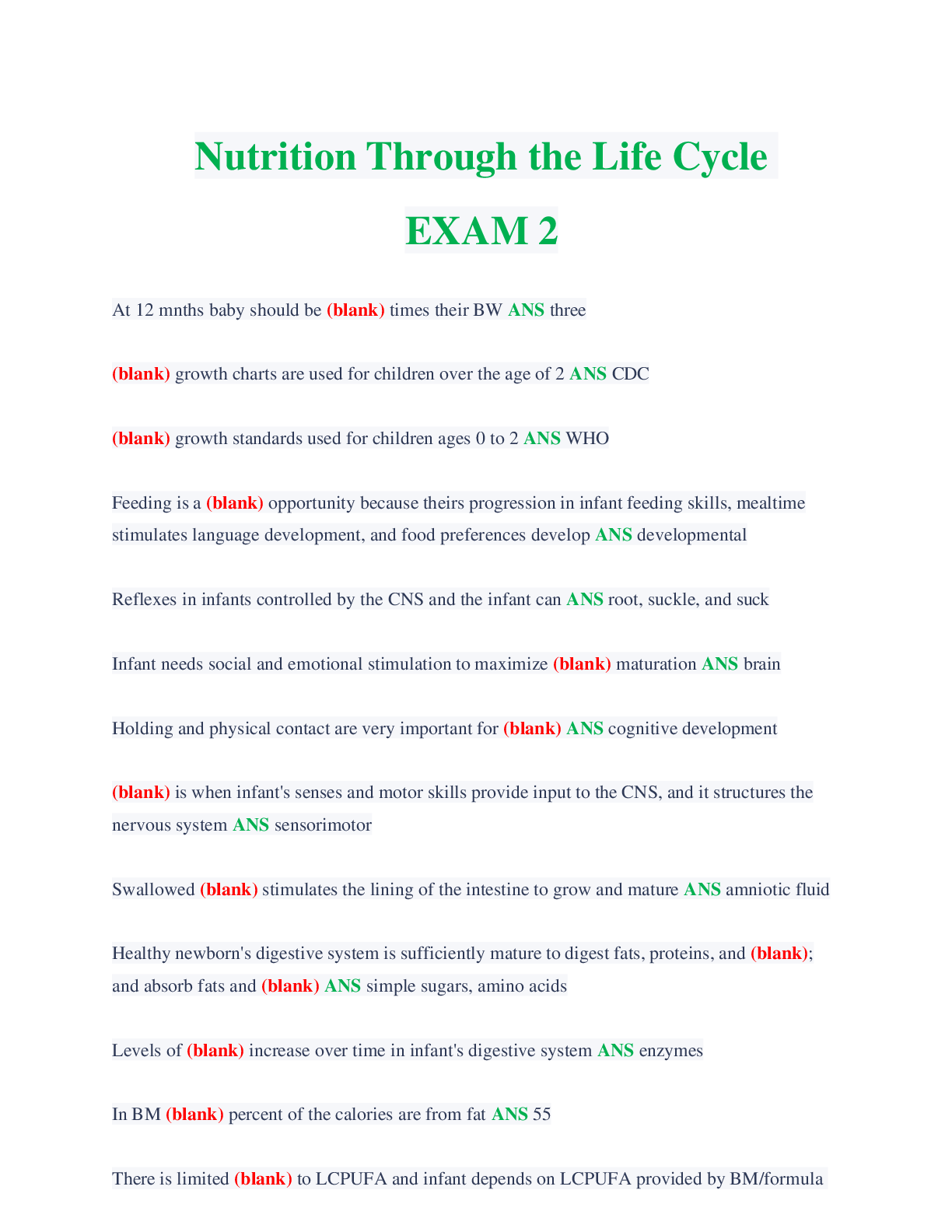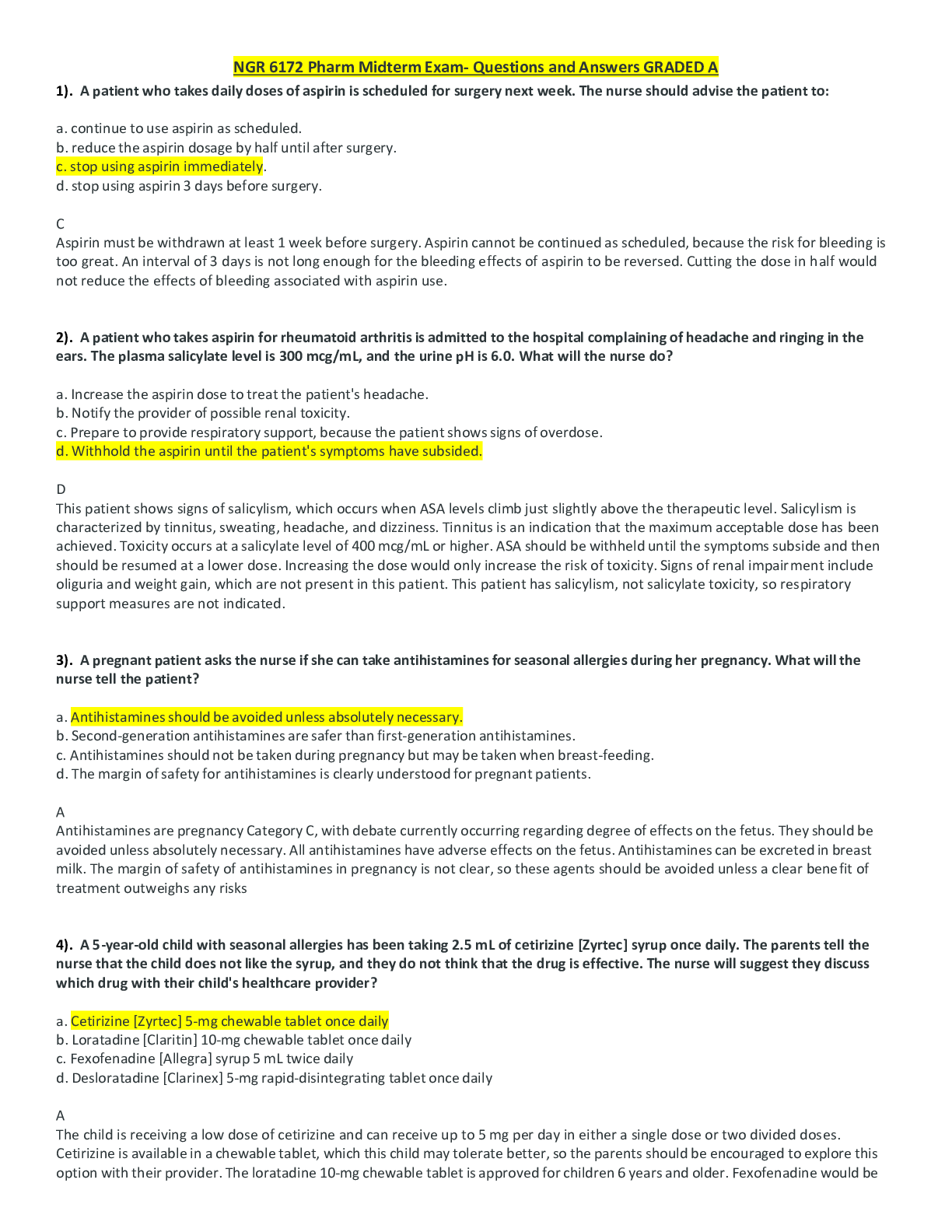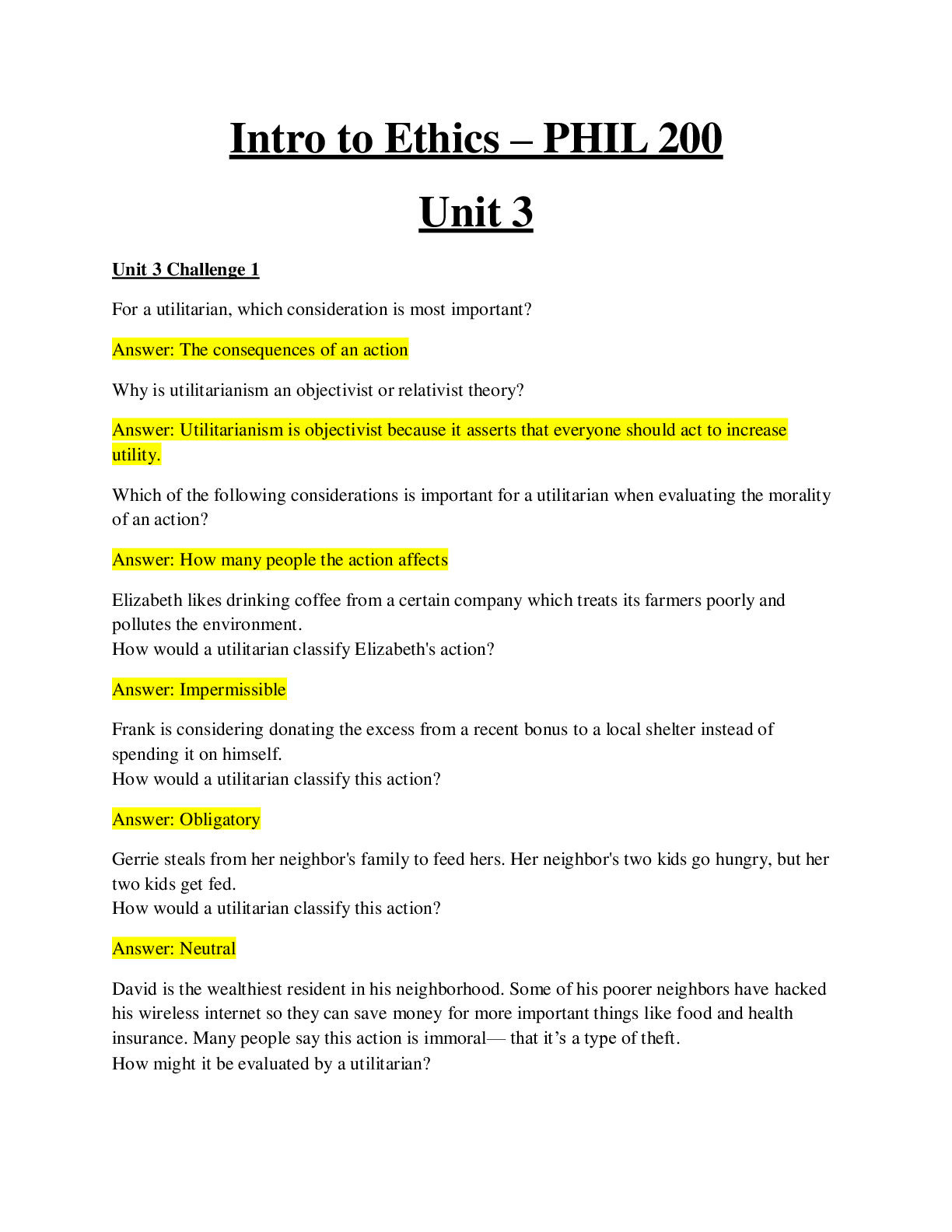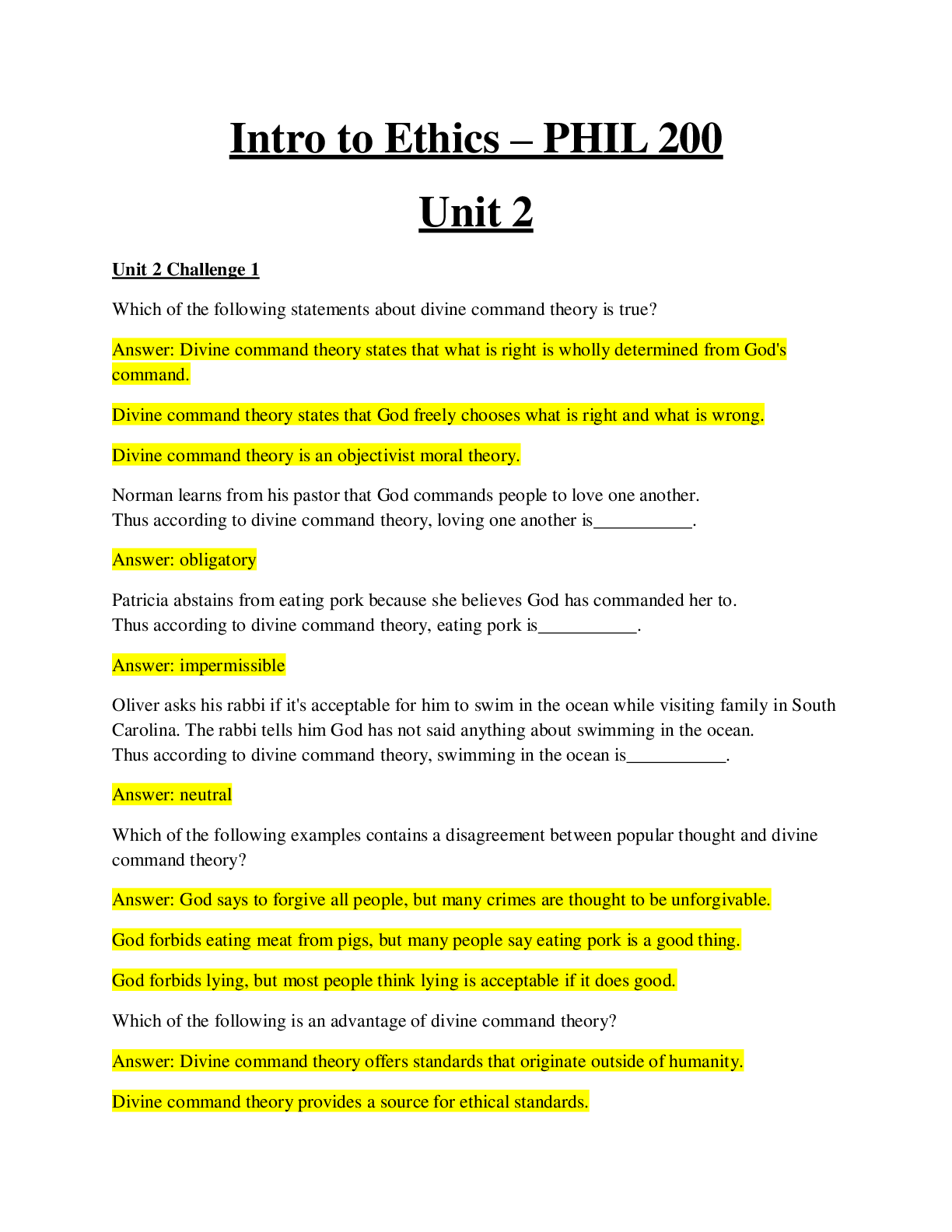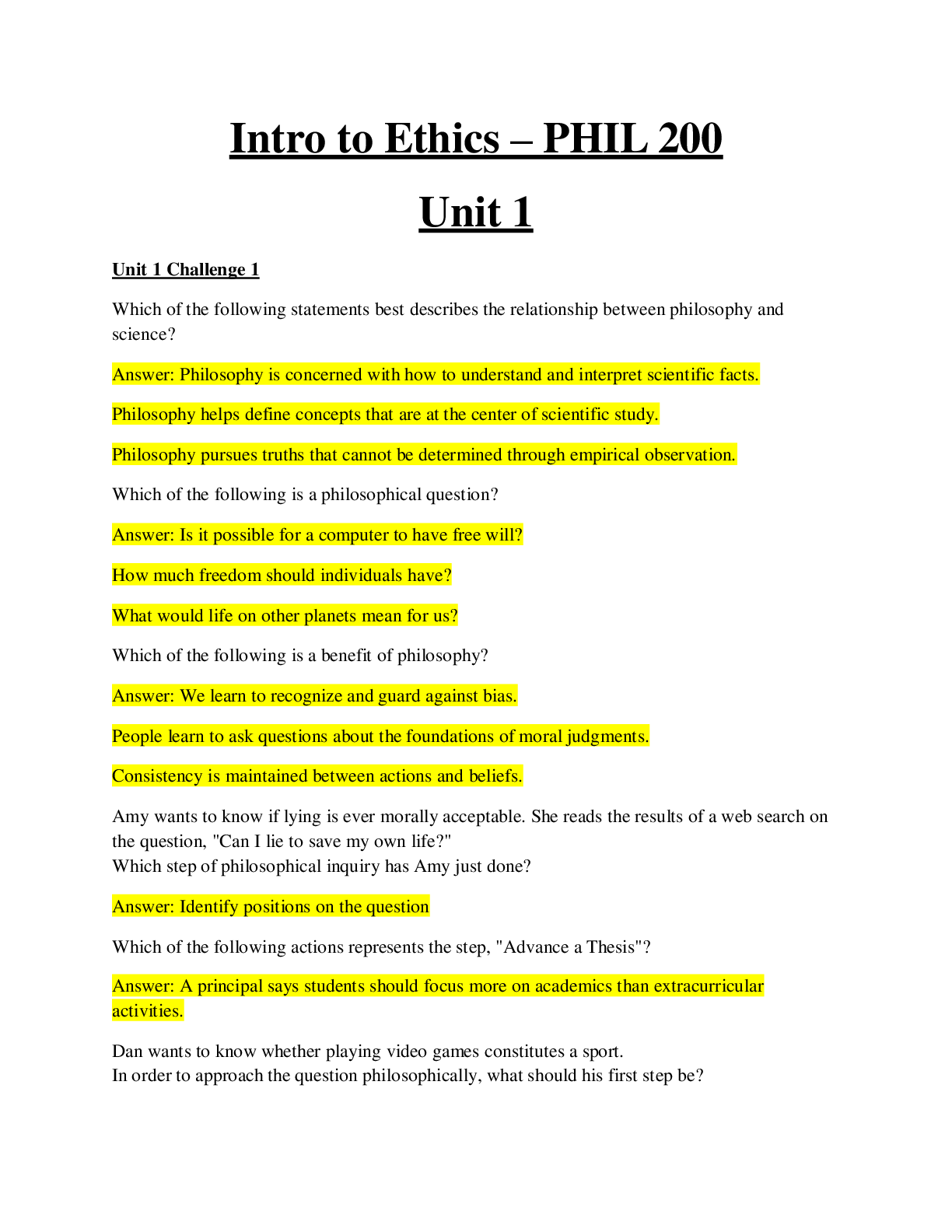Walden UniversityNURS 6560NURS6560-Midterm18
Document Content and Description Below
Question 1 S. is a 59-year-old female who has been followed for several years for aortic regurgitation. Serial echocardiography has demonstrated normal ventricular function, but the patient was los... t to follow-up for the last 16 months and now presents complaining of activity intolerance and weight gain. Physical examination reveals a grade IV/VI diastolic aortic murmur and 2+ lower extremity edema to the midcalf. The AGACNP considers which of the following as the most appropriate management strategy? A. Serial echocardiography every 6 months B. Begin a calcium channel antagonist C. Begin an angiotensin converting enzyme (ACE) inhibitor D. Surgical consultation and intervention Question 2 An ascending thoracic aneurysm of > 5.5 cm is universally considered an indication for surgical repair, given the poor outcomes with sudden rupture. Regardless of the aneurysm’s size, all of the following are additional indications for immediate operation except: A. Comorbid Marfan’s syndrome B. Enlargement of > 1 cm since diagnosis C. Crushing chest pain D. History of giant cell arteritis Question 3 Jasmine is a 31-year-old female who presents with neck pain. She has a long history of injection drug use and admits to injecting opiates into her neck. Physical examination reveals diffuse tracking and scarring. Today Jasmine has a distinct inability to turn her neck without pain, throat pain, and a temperature of 102.1°F. She appears ill and has foul breath. In order to evaluate for a deep neck space infection, the AGACNP orders: A. Anteroposterior neck radiography B. CT scan of the neck C. White blood cell (WBC) differential D. Aspiration and culture of fluid Question 4 Mr. Draper is a 39-year-old male recovering from an extended abdominal procedure. As a result of a serious motor vehicle accident, he has had repair of a small bowel perforation, splenectomy, and repair of a hepatic laceration. He will be on total parenteral nutrition postoperatively. The AGACNP recognizes that the most common complications of parenteral nutrition are a consequence of: A. Poorly calculated solution B. Resultant diarrhea and volume contraction C. The central venous line used for infusion D. Bowel disuse and hypomotility [Show More]
Last updated: 1 year ago
Preview 1 out of 24 pages
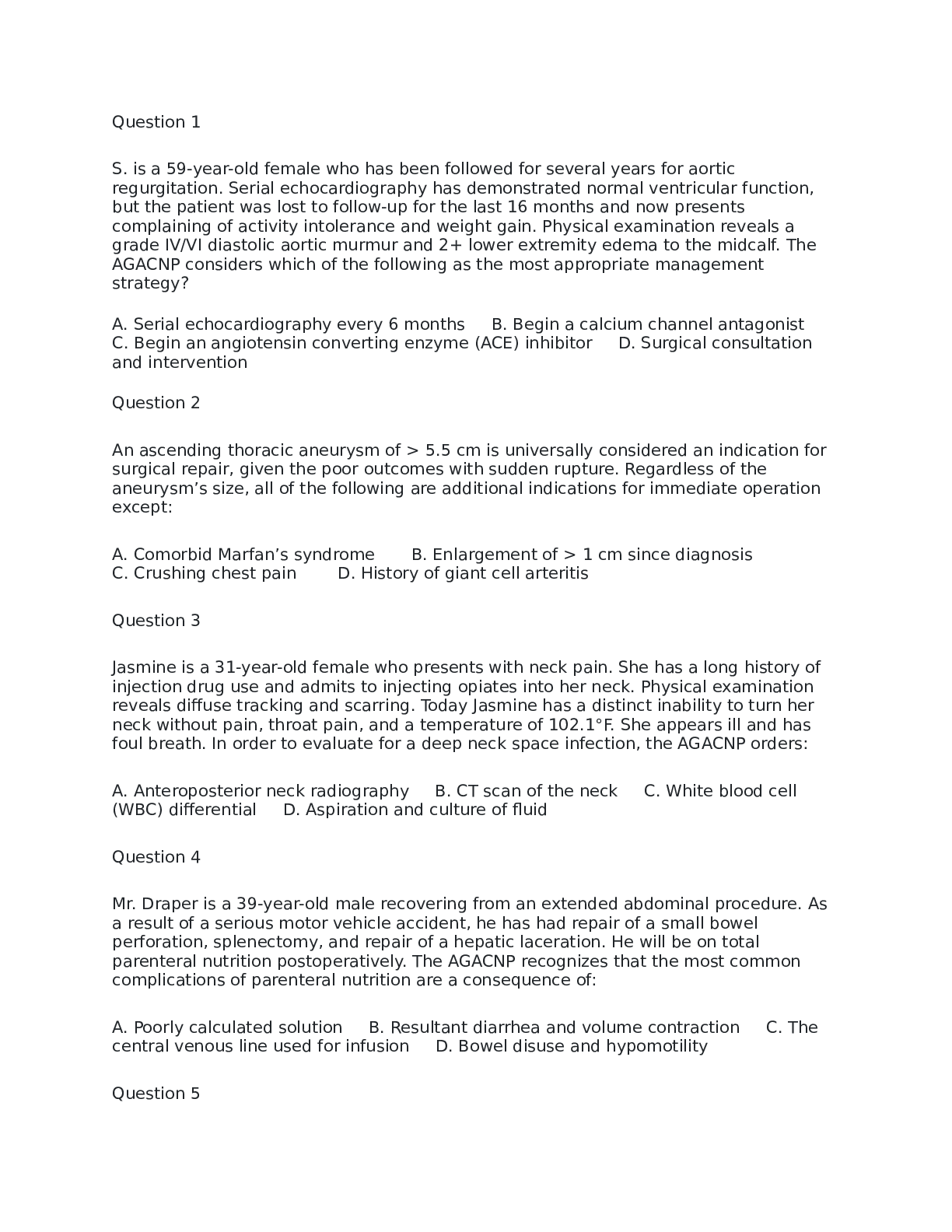
Reviews( 0 )
Document information
Connected school, study & course
About the document
Uploaded On
Sep 28, 2021
Number of pages
24
Written in
Additional information
This document has been written for:
Uploaded
Sep 28, 2021
Downloads
0
Views
145

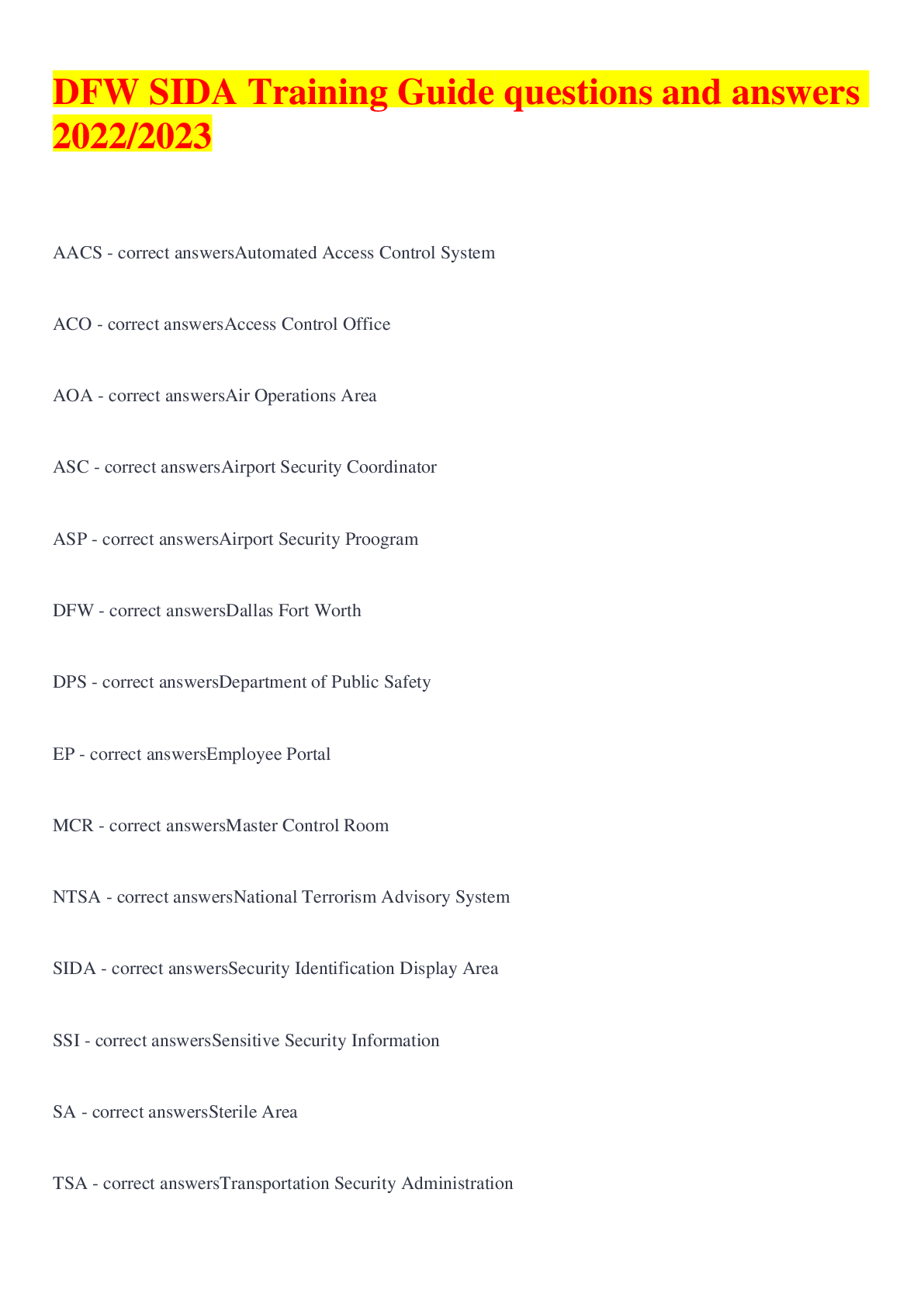
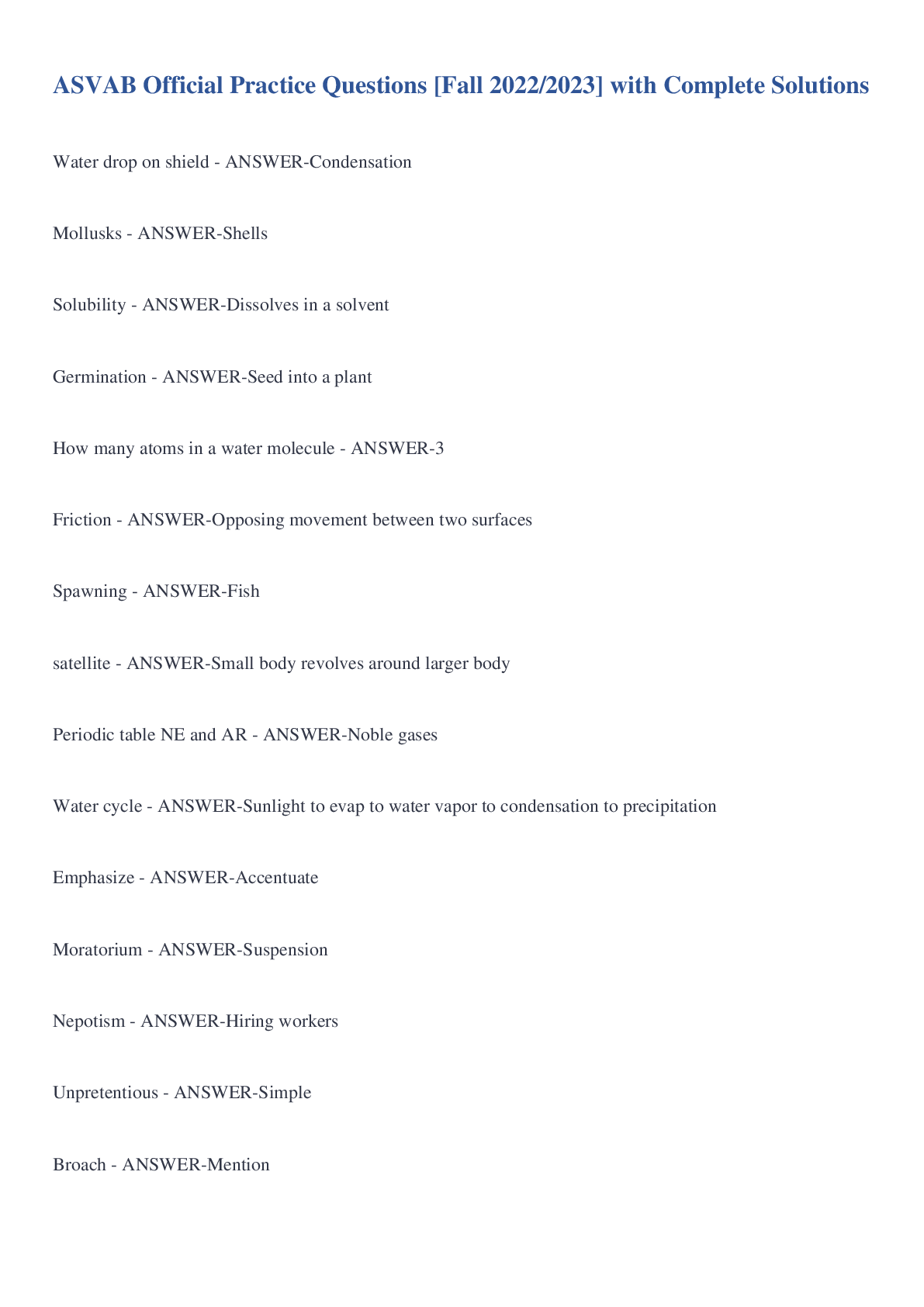


.png)
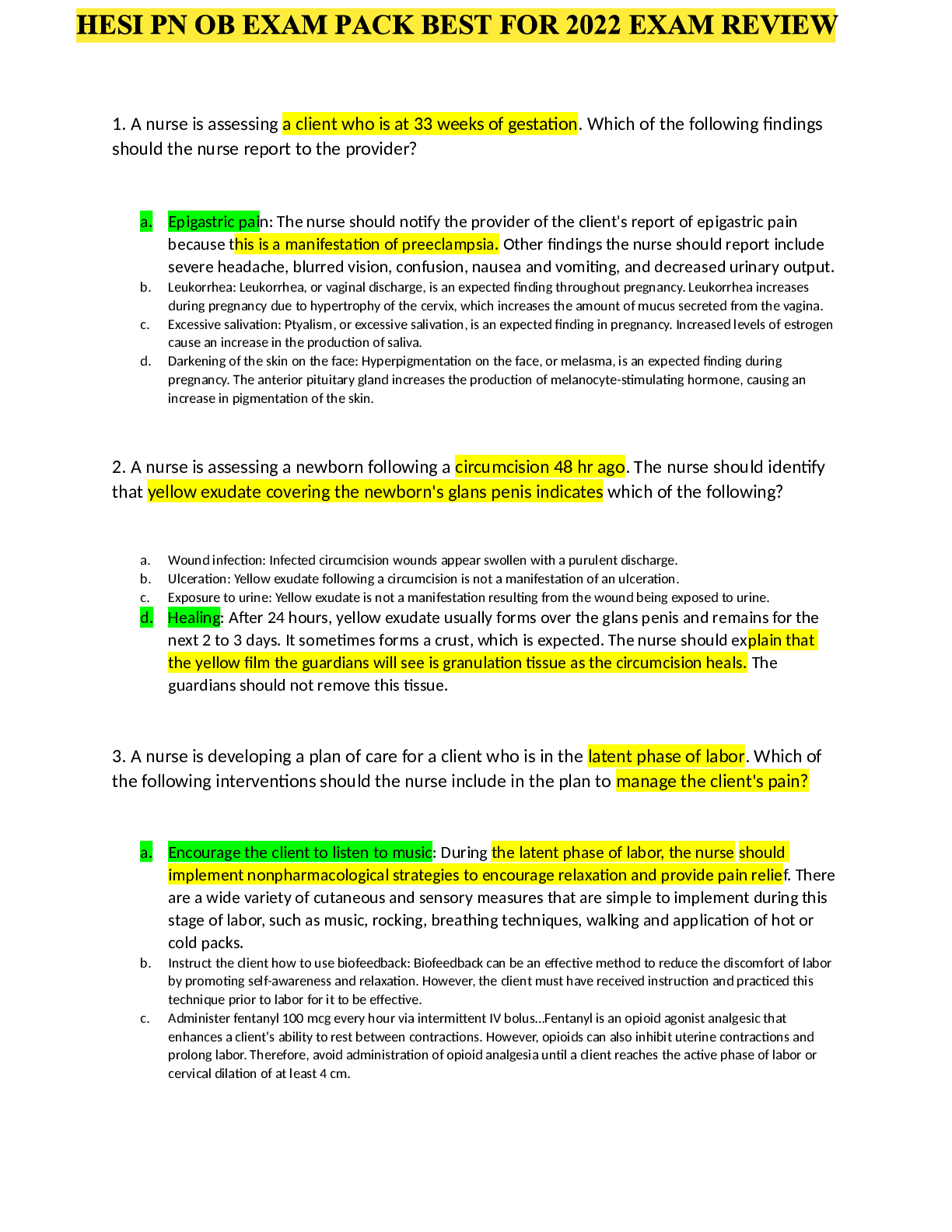
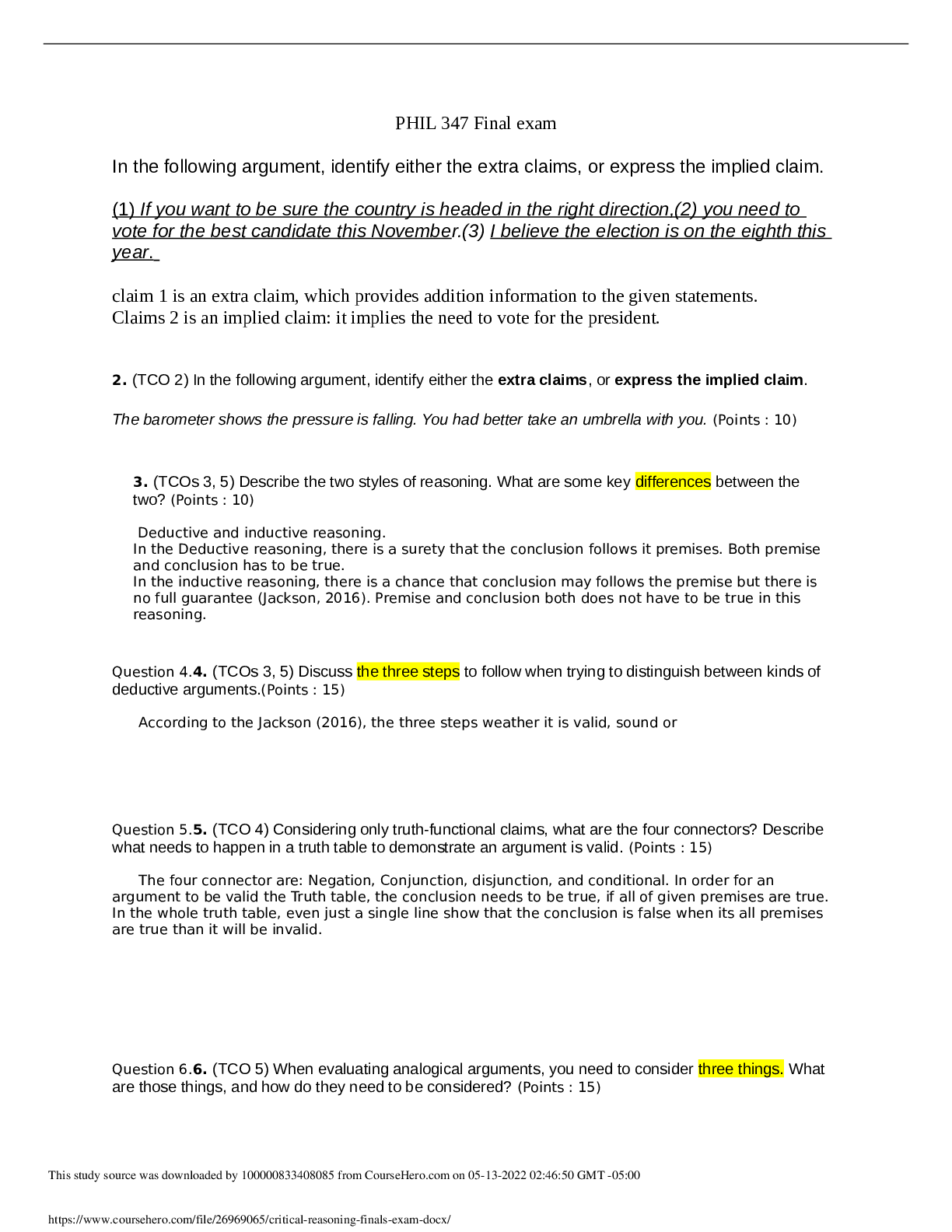
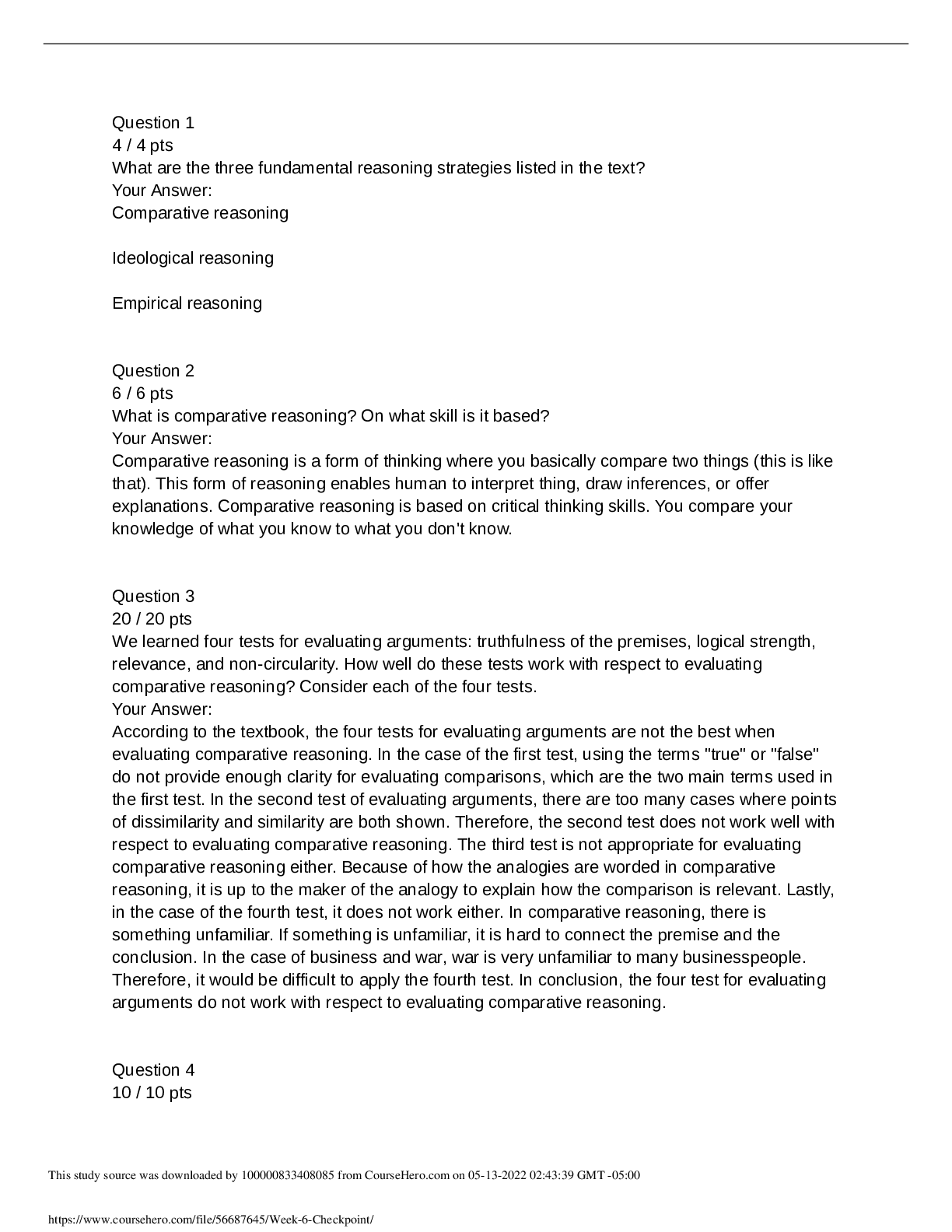
.png)
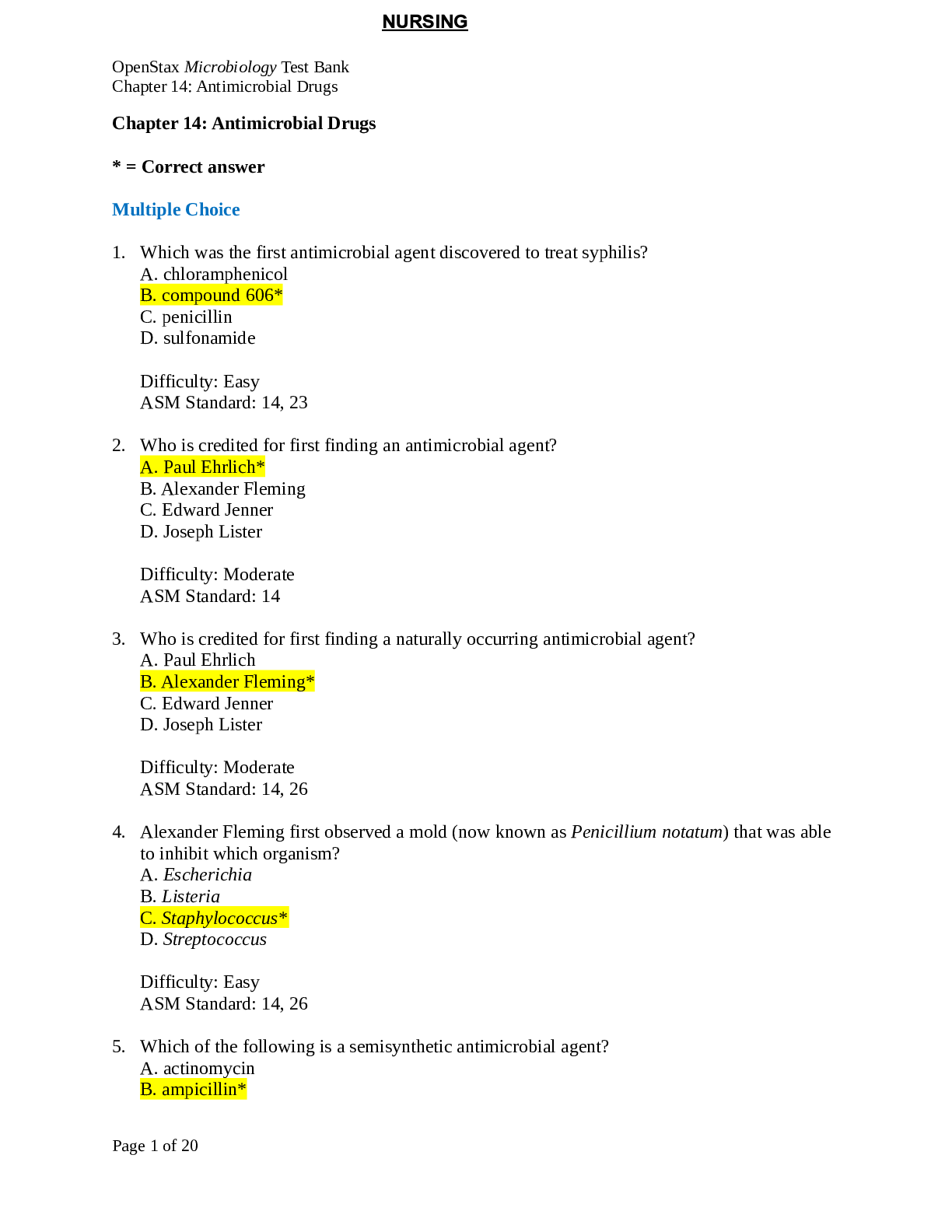
.png)


.png)



